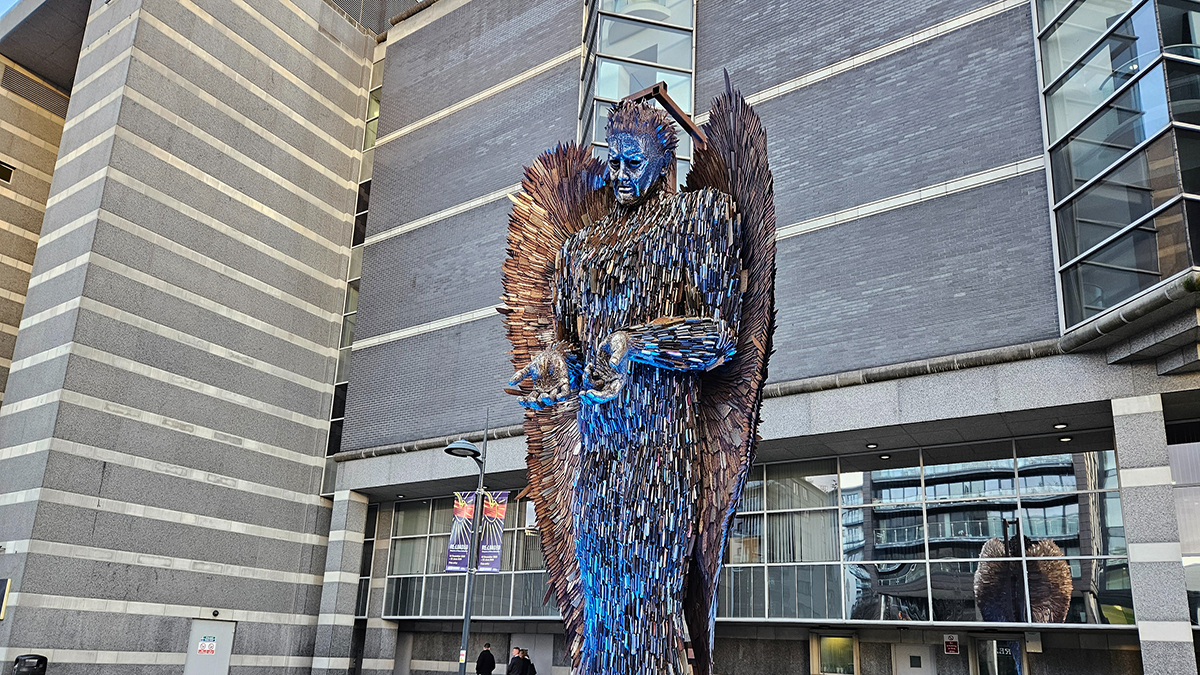
I recently had the opportunity to speak at the Red Kite Secondary Leaders Alliance, a congregation of educational, political and law enforcement stakeholders from across Yorkshire, working to improve learning and outcomes for young people in schools. I was invited to speak about my research involving young offenders, gun and knife crime and violence in urban areas.
The Red Kite Alliance stands as a testament to collective action, bringing together schools and institutions representing different backgrounds and communities and offering a breadth of contributions to the important conversations taking place. Their mission is to pool educational resources and expertise, fostering an environment where young minds can flourish. It is a West Yorkshire-driven initiative, rooted in the belief that collaboration is the key to empowering the region’s youth.
My presentation combined research insights and real-world implications. Drawing from my own studies with young offenders, I emphasised the challenges facing today's youth. Knife crime and the fear of knife crime are self-perpetuating factors in many young people’s experiences. Research has found that fear is a common factor that drives many young people to carry knives. In understanding the driving motives as to 'why' many young people carry such weapons interventions involving a wide range of public services including police, education, public health agencies, and youth services can begin to approach the problem in a meaningful and coordinated ways in which to reduce knife crime.
The audience was as diverse as the topics discussed. From secondary school leaders to local politicians, from law enforcement officials to student representatives, each participant brought a unique perspective to the table. It was a testament to community engagement, where dialogue and collaboration created a strong foundation for progress going forward.
One of the most remarkable outcomes of this engagement was the collaboration between Leeds Trinity University and Ralph Thorsby School - a foundation secondary school and sixth form located in Holt Park, Leeds. This partnership transcended the confines of academia, paving the way for students from Ralph Thorsby to access opportunities at Leeds Trinity University. Work is now underway to organise engaging activities where A-level students from the school can explore the Criminology course offer at the University. It's a testament to the ripple effect of community collaboration, where knowledge sharing extends to tangible actions that shape the future.
Perhaps the most profound impact of my presentation was the dialogue it sparked. As voices from different sectors intersected, a sense of collective responsibility began to emerge. It wasn't just about identifying problems but about forging solutions together, with each stakeholder playing a vital role in the process. For example, a West Yorkshire Police representative spoke of the current knife crime situation within Leeds and its suburbs and of the partnership responses in tackling this situation via a multi-agency approach dealing not only from policing responses to knife crime but also of youth agencies and public health agencies intent on addressing this social issue.
In an era marked by uncertainty and societal challenges, events like the Red Kite Alliance offer a glimmer of hope. They remind us that change doesn't happen in isolation but through concerted effort and collaboration. My presentation was not just a dissemination of research findings; it was a call to action, a catalyst for meaningful change in the fabric of West Yorkshire's communities.
And at the heart of it all lies the simple yet powerful idea that together, we can make a difference.
Dr Rob Hornsby is an Associate Professor in the School of Criminology, Investigation and Policing at Leeds Trinity University.